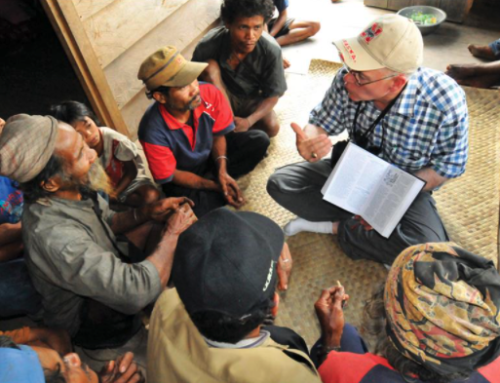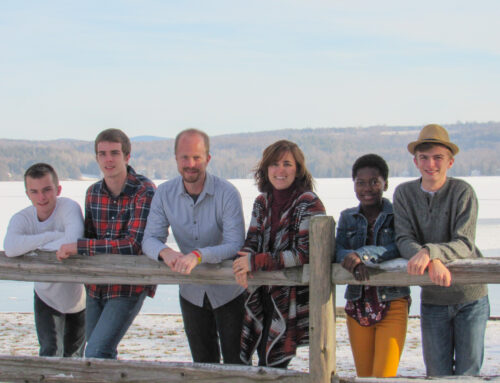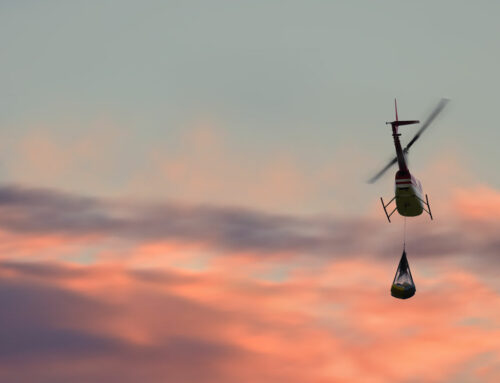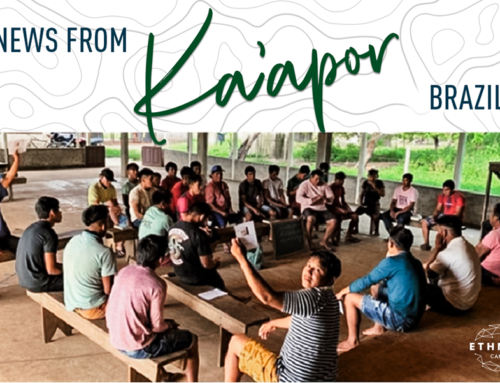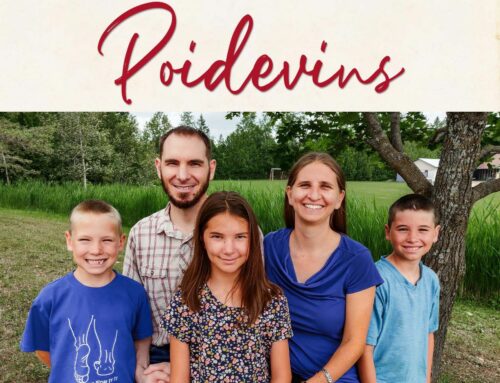There are many miles and many striking contrasts between the Riepmas’ two homes.
Mike and Cher Riepma recently headed home to the USA for a short time to spend precious time with family. There was a little grandson to see before his parents left for a ministry assignment in the Asia-Pacific region. There was also a daughter’s graduation from nursing school and the priority of spending time with an aging parent.
The days flew by quickly and soon it was time to travel thousands of miles to return to their ministry with the Ese Ejja people in a place that seems worlds away from their family home. It took five flights and one very long motorcycle drive to get back to their ministry “home.” And Mike says that leaving arctic-like temperatures in Michigan to return to a temperate zone brings huge, abrupt alterations in their lives.
“I am amazed at how quickly my daily routine has changed,” Mike writes. “I have gone from shoveling snow to cutting grass, from scraping icy windshields to sharpening mower blades, from driving through white-outs to navigating aguaceros (downpours), from living through record-breaking cold to living in record-breaking flooding along our river.”
Mike says there’s quite a contrast when it comes to shopping, too. Their tiny village store has barely three shelves of inventory—not much like having that nearby Walmart.
In Michigan, he observes, one might expect to see an occasional lonely spider in the shower drain. But now, back among the Ese Ejja people, they experience “a constant battle with ants, roaches, bees, bats and rats.”
Mike and Cher listen to the radio now instead of watching TV and they have traded hot showers for bathing outside under rain gutters. Now, instead of being surrounded by family, there are just the two of them. Living where they do, Mike observes, “you obviously have to make adjustments.”
What compels those adjustments–frequently to hardship? What motivates the sacrifices? Why do two people feel constrained to leave behind generations of beloved family and comfortable, familiar surroundings to live in a remote place full of change, challenge and crawling creatures?
It is seeing the need and seeing God at work on that need that motivates Mike and Cher to do what they do. Mike says that, though it is hard to be torn away from a church fellowship where their souls were fed “through great Bible teaching and fellowship,” in returning to their ministry place, they strongly sense “the constant battle for truth in an animistic culture where there are many satanic strongholds.”
Hardships are tangible and frequent. Right now rivers are at record level highs from intense rainfall in recent weeks. Towns along the banks have been flooded and people have lost crops, gardens and even homes. Access roads are underwater; relief is slow in coming. Recently, while they were at a church meeting, Mike and Cher’s home was broken into and money was stolen.
Ministry there, Mike admits, is certainly not easy. Prayer is needed.
“We ask for prayer,” he writes. The local flooding has created a “dire situation.” Pray that the Ese Ejja people will, in the face of hardships and loss “reflect on their lives and be drawn to the Lord and that God’s people will be a tremendous blessing to those in need. … Pray that Cher and I can adapt quickly back to our life here and keep pressing forward in the work.”
He notes that even the floods have carried with them some blessings in disguise. “I was very encouraged hearing about believers with very little helping others worse off,” Mike shares.
Will you stop right now and pray for Mike and Cher as they follow God’s lead in sharing the love of Jesus with the Ese Ejja people? And while you’re at it, ask God what He might want you to do to help take the gospel to people who are waiting. Mike and Cher would tell you that seeing God’s faithful project unfolding in changing people’s hearts is a joy—one that is entirely worth all the sacrifices.


